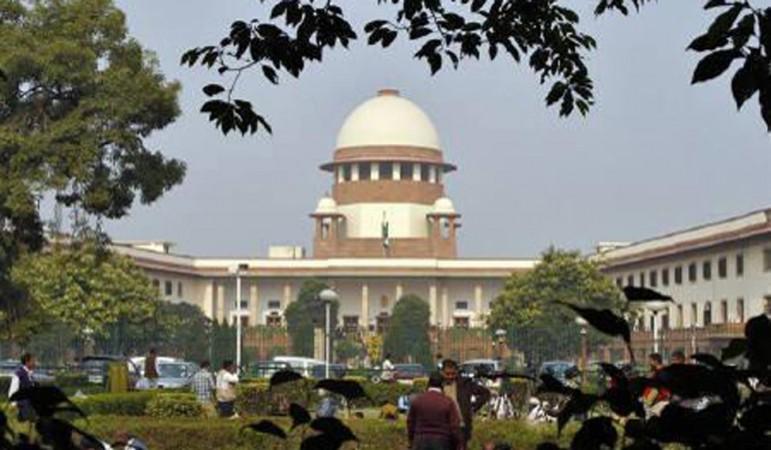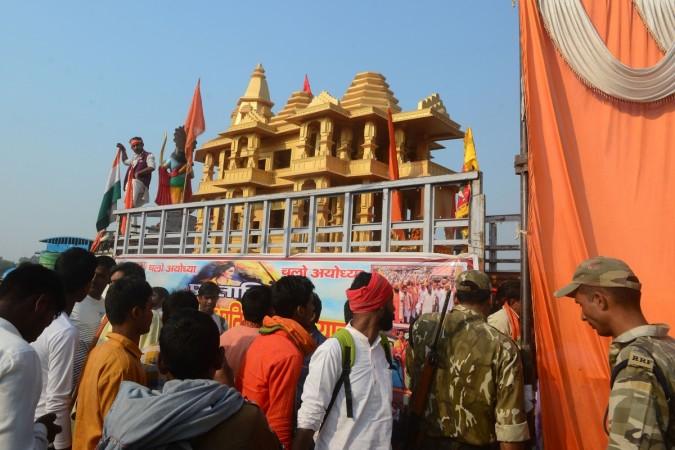
The Supreme Court on Wednesday, March 6, reserved its order on sending the contentious Ram Janmabhoomi-Babri Masjid land dispute case for mediation even as the Hindu parties including the state of Uttar Pradesh opposed the court's suggestion. The top court said that the Ayodhya case is not an issue of land but one of "sentiment and faith".
A five-judge Constitution bench headed by Chief Justice Ranjan Gogoi said, "We intend to pass the order soon." The bench had on February 26 suggested an amicable resolution in the case through mediation and reserved its order for March 6.
"It is not only about the property. It is about mind, heart and healing, if possible," said Ranjan Gogoi which reserved its decision on referring the case to a court-appointed mediator.
Justice SA Bobde, one of the five senior judges hearing the case, said: "Don't tell us about history, we also know history. We have no control over the past... We cannot undo who invaded, what Babar may have done, who was king at the time, whether there was a mosque or temple. It's about sentiments, about religion and about faith. We are conscious of the gravity of the dispute."
The bench also comprised Justices S A Bobde, D Y Chandrachud, Ashok Bhushan and S A Nazeer.
"There need not be one mediator but a panel of mediators. When the mediation is on, it should not be reported on. It may not be a gag, but no motive should be attributed to anyone when the mediation process is on," Justice SA Bobde said.
On February 26, the bench had said, "We have suggested to the parties that during the interregnum a court-appointed and court-monitored mediation with utmost confidentiality could be initiated to bring a permanent solution to the issues raised in the cases." "Even if there is only 1 per cent chance, it should be explored," Justice Bobde had said emphasising for mediation in the matter.
While Muslim side and Nirmohi Akhada from the Hindu side in the case agreed for mediation, the counsel appearing for deity Ram Lalla Virajman, Akhil Bharat Hindu Mahasabha and Mahant Suresh Das were opposed to it saying court-appointed mediation had failed on earlier occasions.

The bench had recorded that apart from Nirmohi Akhada, Hindu sides in the case were not agreeable to mediation and that it could invoke its power under Section 89 of Civil Procedure Code for alternate dispute mechanism. "We are considering a possibility of healing relationship," the bench had observed.
There are 14 appeals before the top court against the 2010 Allahabad High Court judgment trifurcating the disputed site at Ayodhya for Ram Lalla, Nimrohi Akhara and the original Muslim litigant. Several other appeals have also been filed in the court relating to the issue.
(With agency inputs)

















